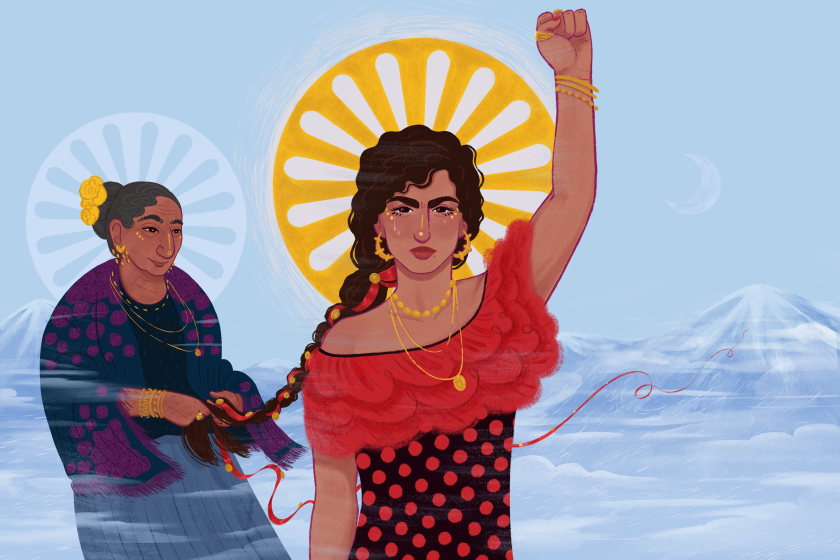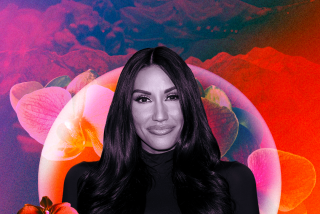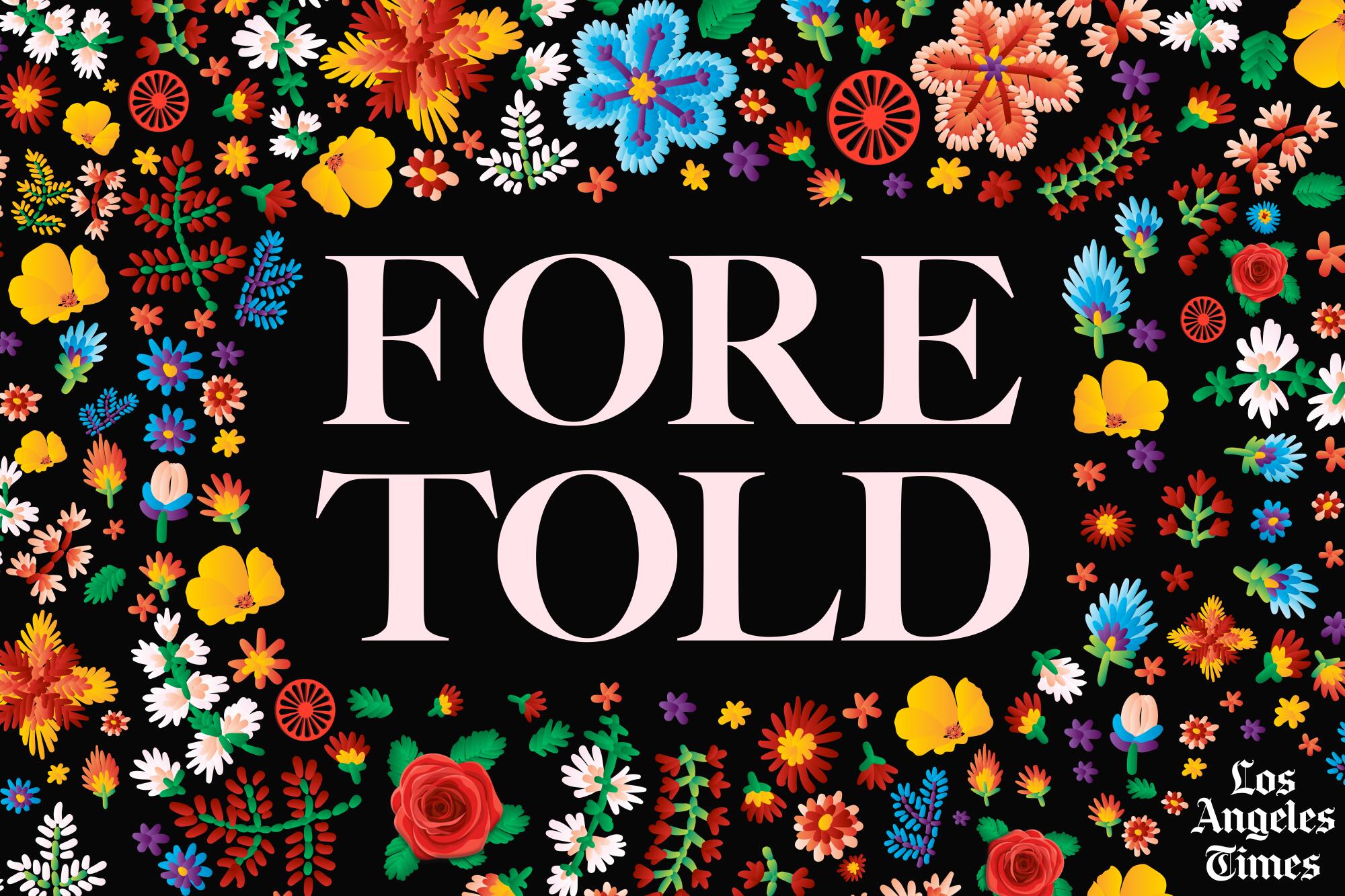
- Share via
Follow 'Foretold' wherever you get your podcasts:
Episode 1: “The G-Word.” In the fall of 2019, reporter Faith E. Pinho received a tip from Paulina Stevens. Paulina said she had grown up in an insular Romani community in California, where she was raised to be a wife, mother and fortuneteller — until she decided to break away. This opened the door to a story spanning multiple continents, hundreds of years and complex, even metaphysical, realities.
Read the episode transcript.
See all episodes and extras.

Whenever I describe the “Foretold” podcast to anyone for the first time, I always run into the same problem: a linguistic snag tripping me up before I even begin. How do I say this? The only way to get through is to address it head-on.
So I ask, “Have you heard of Romani people?”
Then I pause for signs of comprehension and recognition. If I don’t get it, I follow up with: “They’re also known by the slur ‘Gypsy.’”
The issue here is that this term — the G-word — is more widely recognizable than the preferred term “Romani people” or “the Roma.” But when used by non-Romani people, the G-word is a pejorative. Somehow, the word exists in many forms at once: It’s a widely known epithet of a bygone era, a counterculture shorthand for something exotic and spiritual, a proud self-identifier and an unspeakable slur.
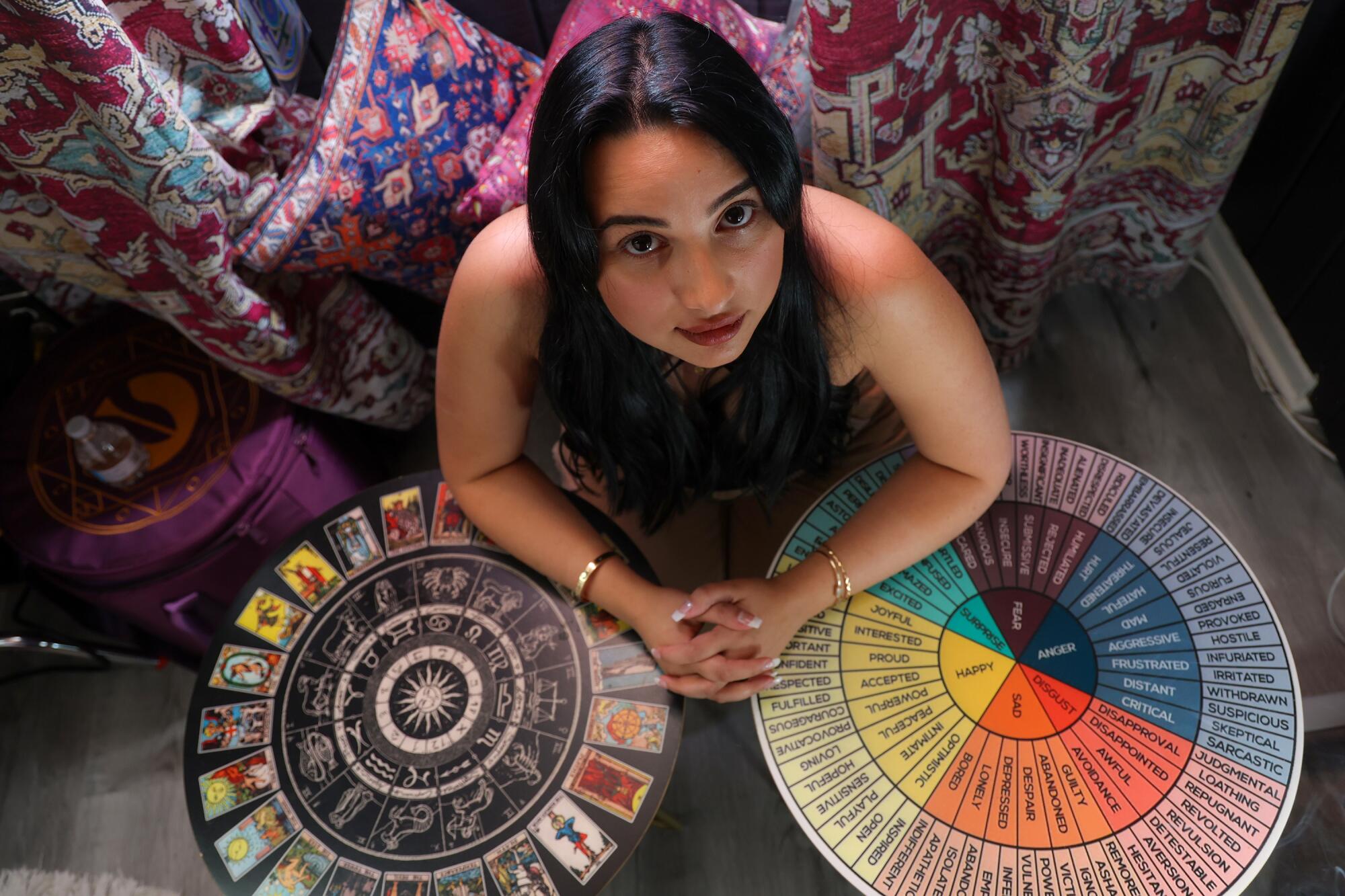
Unsurprisingly, a lot of people don’t know that. Just a few weeks ago, Whoopi Goldberg issued an apology after she faced backlash for using a derivative of the slur — a word that means cheated: In discussing supporters of former President Trump on national television, she mentioned “people who still believe that he got gypped somehow in the election.”
Clearly, the slur status of the G-word hasn’t been fully absorbed by the mainstream.
This issue has presented a unique problem for us. Some people already know that the G-word is offensive; some don’t. So how does one describe a podcast about a Romani American fortuneteller to those who have never heard the term “Romani”? There’s no way around the conversational roadblock. We must address it and acknowledge the context.
You’re not going to hear me throwing around the G-word on this podcast, because for many in the community, it’s a slur. Not for outsiders like me to use. But at the time I had no idea.
— Faith E. Pinho in “Foretold”
When “Foretold” host Faith E. Pinho first met Paulina Stevens in a cafe in 2019, she didn’t know the G-word was a slur. She didn’t know the first thing about Paulina’s culture beyond the top news results on Google.
What dominates the mainstream news coverage about Romani people are stories about psychic scams. So, naturally, when Paulina first approached Faith, she led with a tip about a psychic shop, hoping that the intrigue would work in her favor.
She had given me the highlight reel of all the most salacious things that would intrigue a journalist. And, OK, I’ll admit I took the bait.
— Faith E. Pinho in “Foretold”
But Paulina’s story was more than it seemed.
The franticness in Paulina’s voice suddenly made sense. It was the sound of someone stepping out of one world and into another, questioning everything she’s ever learned and feeling out who she might like to become apart from it all.
— Faith E. Pinho in “Foretold”
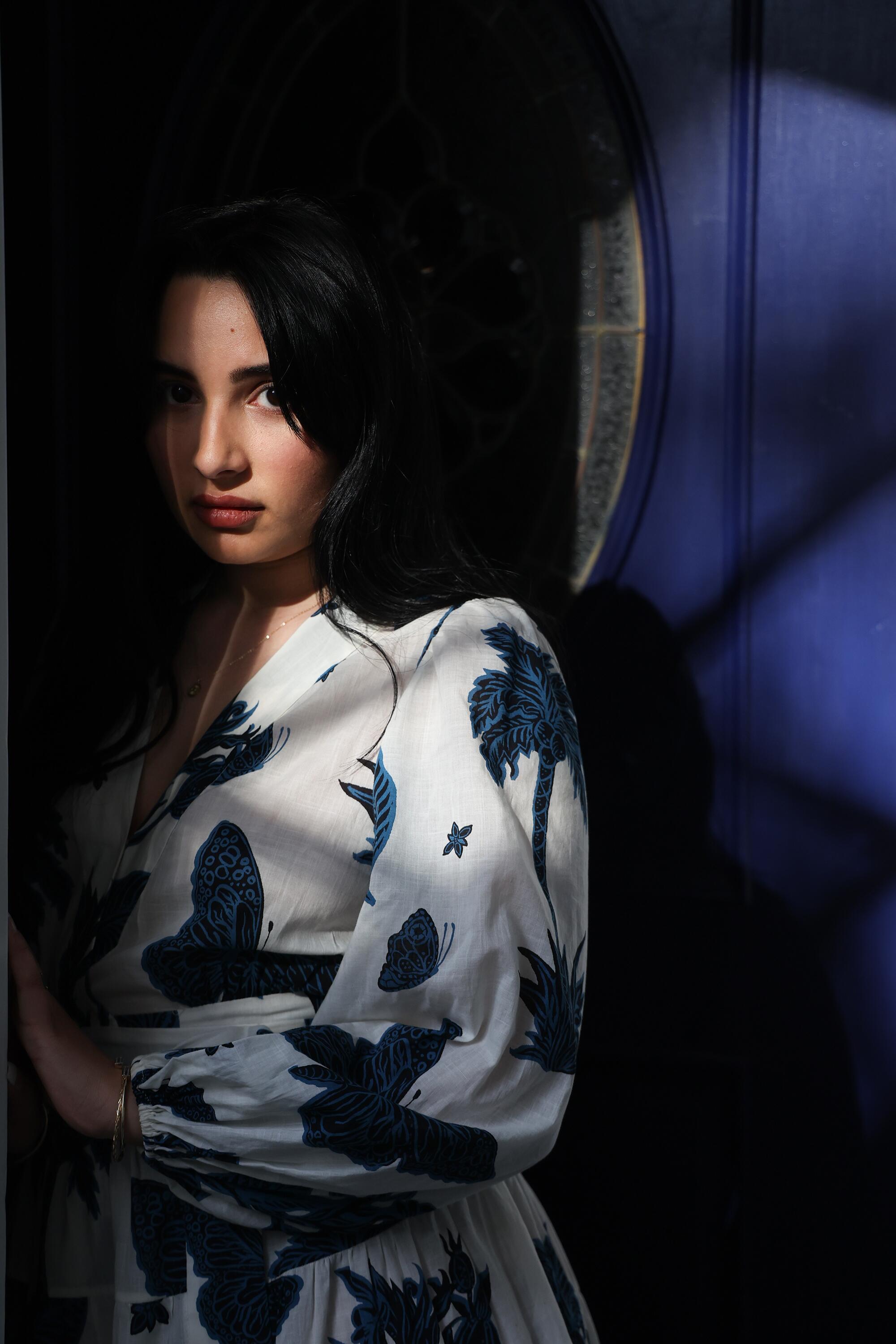
Paulina’s experience resonates with anyone struggling with which parts of their upbringing they want to perpetuate and which parts they want to leave behind. Her story explores the push and pull of individuality and community. What do you owe to your culture? What does it owe to you?
This is the kind of story that starts off complicated. No stone can be left unturned. No simple truth is truly simple. You have to hold several contradictions in your mind at once, to sit with the discomfort and beauty of each layer that’s peeled back.
There are so many different layers in Paulina’s story, just as there are so many versions of the Romani American experience.
In my mind, I’m speaking to a really small group of people. I’m speaking to my younger cousins; I’m speaking to the girls that I knew and my friends. And the reason why it makes me emotional is because I feel like the people that I want to speak to the most will probably never hear me.
— Paulina Stevens in “Foretold”
— Jazmín Aguilera

Go even deeper
Dr. Ethel Brooks, the Romani cultural consultant for the “Foretold” podcast, dives into history and describes how her heritage fits into her own life.
I love Romani heritage and symbols of our unity, including our flag. But celebrating our history of resistance doesn’t mean erasing our unique individual identities.
More to Read
About 'Foretold'
Thanks to Shani Hilton, Kevin Merida, Abbie Fentress Swanson, Julia Turner, Brandon Sides, Dylan Harris, Carrie Shemanski and Kayla Bell. News clips in this episode are courtesy of WISN and Miami news station WPLG-TV10.

